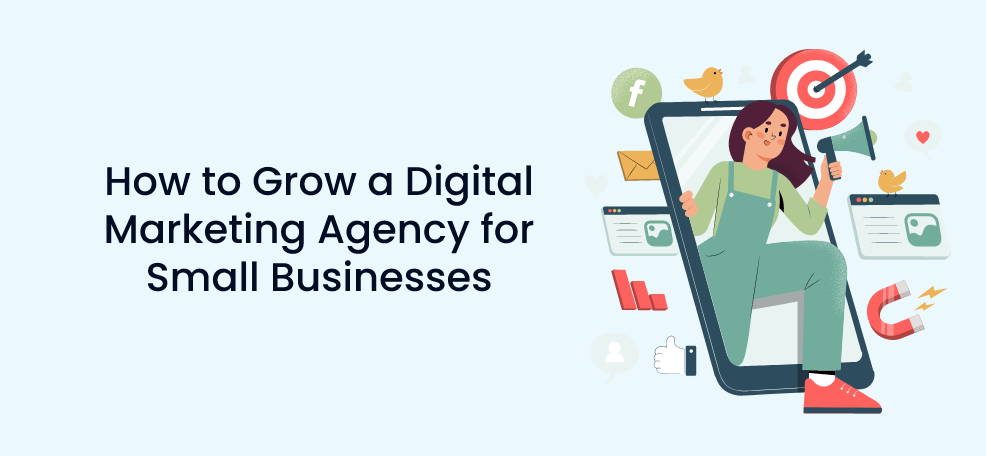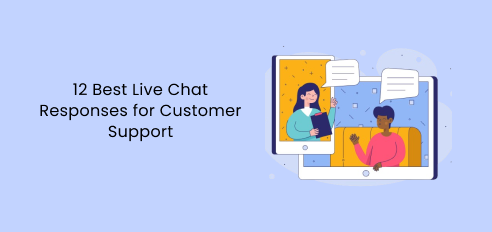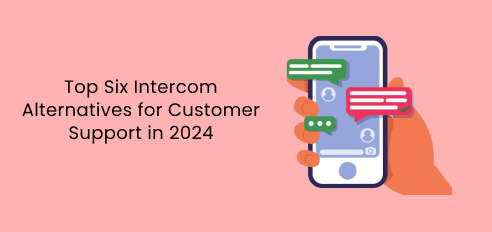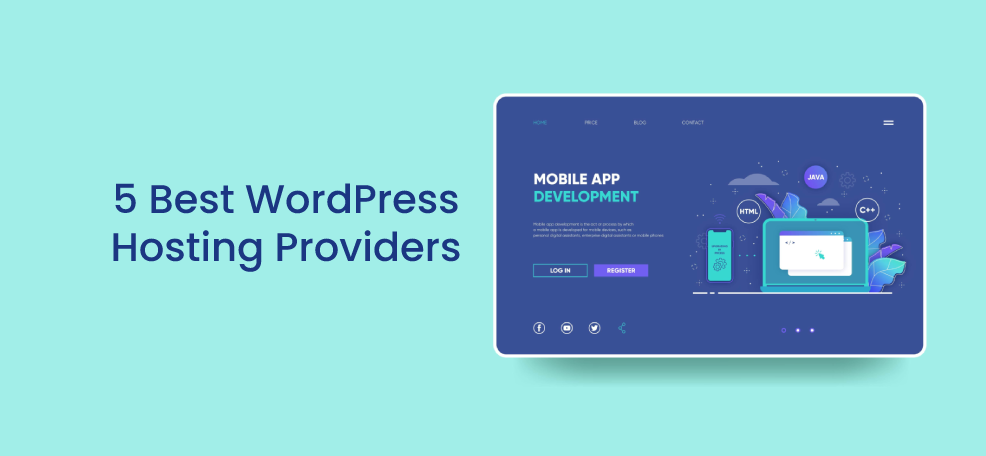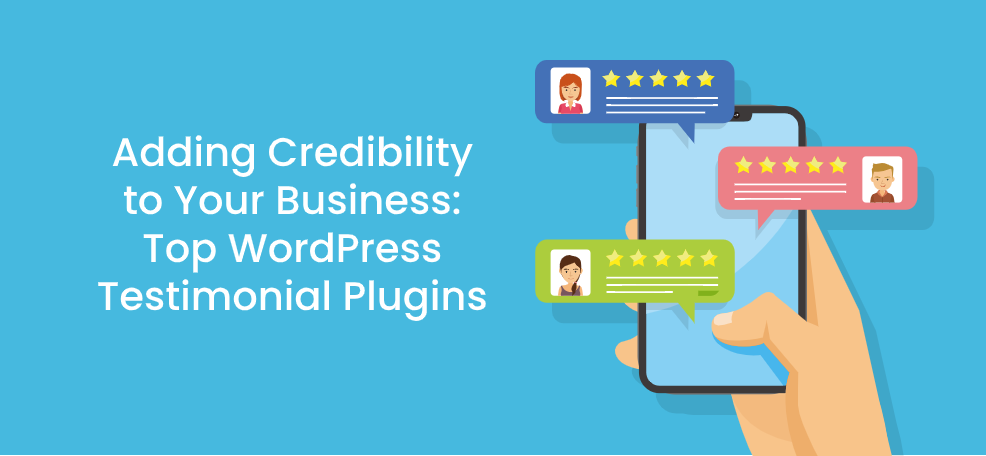The digital marketing industry is massive, and marketing is one of the most relevant industries in our hyper-digital society. There are more businesses competing for visibility than ever, and despite the fact we’ve grown accustomed to social media, many companies still struggle to maintain a presence or reach their goals online.
Many of today’s digital agencies are startups, usually small teams of 10 to 20 employees who all perform various roles to help their clients. Clients who, for the most part, can be a struggle to acquire and maintain in the first place.
If you own a digital marketing agency for small businesses, then you know how important your services are. You help entrepreneurs and founders like you grow, evolve, and build their identities both on and off-line. The work you do for their websites and social media profiles has real-world consequences that are undeniable.
All that magic, however, isn’t easy to conjure if you lack scale or resources. To grow your agency, here are expert tips that will take your business to new heights.
Create an Open Culture
For small agencies, growth has to come from more than one person. Even if you are in charge, you can’t expect all the best ideas to be yours and yours alone. In fact, avoiding or ignoring feedback from employees only limits your potential.

Hold team meetings at least once a month that is dedicated to ideation. What are ways their jobs could be done better? Do they have any suggestions on getting new clients or improving your services?
When everyone pitches in, there is no need to worry about ownership over ideas. Instead, offer acknowledgment when it’s necessary, and praise others for sharing. Then, work together as a group to build upon every great idea and make it something wholly shared.
Embrace Trial and Error
Just like A/B testing is important in marketing, the same logic applies to business. You have to be willing to make mistakes in order to grow.
Mistakes, by the way, don’t always have to be equivalent to total failure. Change up your metrics, and define what criteria your team uses to determine what works and what doesn’t. This is the best way to make meaningful, long-term improvements. The better you get, the more easily you can satisfy your clients.
Another important element of trial and error is establishing a flexible growth trajectory. So many businesses want to grow without ever defining what that means for their operations.
In general, it’s helpful to establish milestones, and focus on key metrics as you work toward your goals.
Ask for Referrals
If you’re a new agency, it can feel awkward asking clients for referrals. You don’t want to give off the impression that you need the money, but this type of thinking is harmful to your development. Referrals are a natural part of doing work as a business.
Even large-scale companies still ask for their customers to leave reviews and spread the word with friends and colleagues. To make this more effective, consider implementing a client referral program. Anyone who becomes a client through a referral can earn a slight discount, while the person who referred them can get credit toward their next service with you.

Beyond having stellar services, you also need fantastic customer service. A small business owner wants guidance, support, and education from their team. This means you should always be willing to go the extra mile. When they have questions, offer more than a one-word answer. Build up your customers, and they’ll help you build, too.
Upskill Your Team
Improving your agency’s ability to serve a shifting consumer base is imperative to growth. This means looking at multiple avenues for employee development, including skills courses, certifications, and even full-fledged degrees. You may even decide to go back to school for a degree in digital marketing, communications, advertising, or business administration.
While that might seem like a huge step, it can be one of the most beneficial choices you make. This is more than a one-time achievement. It’s a long-term investment in your company’s growth. Bootstrapping a business and paying for college could quickly be unmanageable, but don’t worry.
Just like there are ways to fund a company, you have options for financing your degree. Having student loans available from private lenders is one way you can customize your experience. You get the money you need, along with the flexibility to repay over time as your business prospers.
Don’t Overlook LinkedIn
A lot of marketing agencies limit their platforms to Instagram, Facebook, and Google. SEO is one of your strongest tools, but it isn’t your only way to draw clients. By networking on LinkedIn you can help your business establish authority and boost visibility.

Post relevant content that is both informative and engaging. Offer professional advice as well as helpful tips and tricks that show off your marketing smarts. Whenever you need help with a particular project, use your connections first. Your employees may also know of others who can lend their skills and talents to your company. Whether you’re exporting data from leads or automating contact requests, use automation tools for LinkedIn to make the process efficient.
Find Your Talents
Do you thrive at copywriting or service page creation? Are you an expert in PPC campaigns or local listings?
There are so many aspects of digital marketing that consumers look for. Leverage your skill sets to attract more clients who are likely to be happy with the work you do. You can’t please everyone, so you shouldn’t try to do everything, either.
Focus on what you can do the best, then satisfy your clients as you continue to upskill and expand your services.
Focus on Emerging Niches
It isn’t difficult for someone to find a marketer to run their Instagram page or optimize their website for good SEO. However, there are some niches that are rapidly growing with plenty of potential for growth. Influencer marketing, for example, could be highly profitable.
You could either represent influencers and pair them with sponsors or vice-versa. PR for social media influencers and content creators could also be a good place to build your brand’s skillset. Before you commit to one area over another, conduct some in-house research.
- What content has driven the most traffic to your site?
- What are the most common services people inquire about?
- How do those services compare to the most purchased options?
- What are you often asked for that you don’t have or currently offer?
Feedback through customer surveys could also help you identify target niches. Rather than taking a guess, use your existing relationships to build your brand.
Target Companies in Transition
The COVID-19 pandemic brought a massive surge of business into digital marketing. As businesses rushed to adapt to the digital landscape, many agencies were able to leverage their expertise to boost their revenue. Although the pandemic began two years ago now, there are still many companies that have yet to acclimate. The shift to digital also left some businesses in a strange liminal space.
While they’ve adopted online marketing in some ways, they aren’t sure how to use it, or their strategies are outdated or misaligned with their goals. Take advantage of the shifting advertising culture to build a client base rooted in growth on both sides.
Make Your Process Transparent
Many marketers hold their cards so close, no one ever sees them. This can be off-putting for a potential lead who wants to know exactly how you do what you do.

Transparency establishes expectations upfront, and it clarifies points of confusion before questions even arise. The truth is that all people in your industry know the same skills. You don’t need to spill all your secrets, but there’s no reason to be vague about what you do. Place pricing, services, and a breakdown of the customer agency relationship on your site.
When both parties are open with one another, you deliver higher-quality results while building a much stronger reputation. Happy customers go on to become repeat clients, and they’re also more likely to refer others to your services.
Show What You Know
As a budding marketing agency, you need to lead by example. This means not only having fantastic SEO and social media but also excellent internet etiquette. The ultra-casual tone that may pass for a lot of freelancers may not resonate with your audience.
Even if you are pandering to a younger demographic, like female entrepreneurs in their 20s, you still need to maintain an air of professionalism. Likewise, just because you write a business blog as part of your strategy does not mean it cannot touch on other lifestyle topics that can circle back in a professional way to your target audience.
While we no longer speak in the stuffy, detached voice that previously governed marketing, it’s still important to emit authority. This means maintaining an active presence, posting consistent content, and building your own business as well as you will anyone else’s.
Prospective clients will explore your website and profiles to determine how trustworthy you are. You can’t promote SEO services if your own site lacks a definitive keyword strategy. Likewise, it’s not in your benefit to advertise social media management when your own accounts are inactive.
